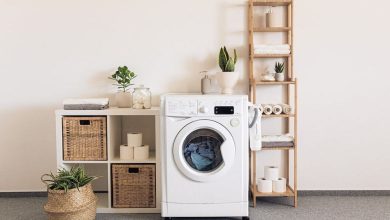How Can I Keep My Indoor Air Clean?

We spend a significant amount of time indoors, whether it’s at home or in the office. However, what many of us don’t realize is that the air we breathe indoors can be even more polluted than the air outside. Indoor air pollution can arise from various sources such as dust, pet dander, pollen, mold, and even volatile organic compounds (VOCs) emitted by household products. Breathing in polluted air can have detrimental effects on our health, causing allergies, respiratory problems, and even long-term illnesses. To ensure that the air we breathe indoors is clean and healthy, there are several steps we can take. Let’s explore them below.
Keep Your Space Clean and Dust-Free
One of the simplest and most effective ways to maintain clean indoor air is to keep your space clean and dust-free. Regularly dusting surfaces, vacuuming carpets and rugs, and mopping floors can help reduce the buildup of dust and other particles that can contribute to indoor air pollution. It’s also important to pay attention to often overlooked areas such as vents, ceiling fans, and window sills, as these can be hotspots for dust accumulation. By keeping your space clean, you can significantly improve the quality of the air you breathe.
Ventilate Your Space
Proper ventilation is essential for maintaining clean indoor air. Opening windows and doors whenever possible allows fresh air to circulate and helps remove stale air and pollutants. If opening windows is not an option, consider using a mechanical ventilation system, such as an exhaust fan or air purifier, to ensure that fresh air is continuously flowing into your space. Ventilation not only helps improve indoor air quality but also helps control humidity levels, preventing the growth of mold and mildew.
Avoid Smoking Indoors
Cigarette smoke is a major source of indoor air pollution and can have severe health consequences for both smokers and non-smokers. If you or someone in your household smokes, it’s crucial to avoid smoking indoors. Smoke from cigarettes contains numerous harmful chemicals and can linger in the air for hours, significantly degrading indoor air quality. Designate a specific outdoor area for smoking to mitigate the risks associated with secondhand smoke and keep your indoor air clean and healthy.
Control Humidity Levels
Maintaining proper humidity levels in your home can help prevent the growth of mold, mildew, and dust mites, which can all contribute to indoor air pollution. Use a dehumidifier in areas prone to high humidity, such as basements and bathrooms, to remove excess moisture from the air. On the other hand, if the air in your home is too dry, consider using a humidifier to add moisture. Ideally, indoor humidity levels should be kept between 30% and 50% to create a comfortable and healthy living environment.
Keep Indoor Plants
Indoor plants not only add beauty to your space but also help improve indoor air quality. Plants naturally absorb carbon dioxide and release oxygen, helping to purify the air. Some plants, such as snake plants, spider plants, and peace lilies, are particularly effective at removing harmful toxins from the air, including formaldehyde and benzene. Place a few indoor plants strategically around your home or office to enhance the air quality and create a calming and natural ambiance.
Choose Natural Cleaning Products
Many conventional cleaning products contain harsh chemicals that can release VOCs into the air, contributing to indoor air pollution. Opt for natural cleaning products that are free from harmful chemicals and fragrances. You can also make your own cleaning solutions using simple ingredients such as vinegar, baking soda, and lemon juice. Not only are natural cleaning products better for your health and the environment, but they also help maintain cleaner indoor air.
In Conclusion
Ensuring clean indoor air is crucial for our health and well-being. By keeping our spaces clean and dust-free, properly ventilating our homes, avoiding indoor smoking, controlling humidity levels, incorporating indoor plants, and choosing natural cleaning products, we can significantly improve indoor air quality. Remember, clean air is essential for a healthy lifestyle, and taking these simple steps can make a significant difference in the air we breathe every day.




